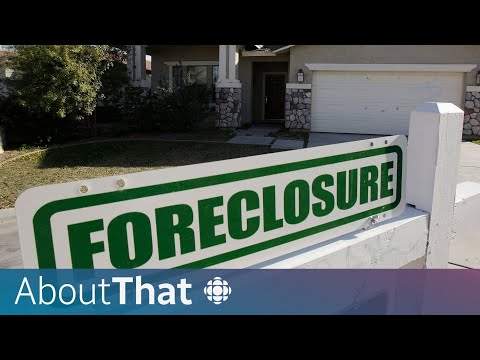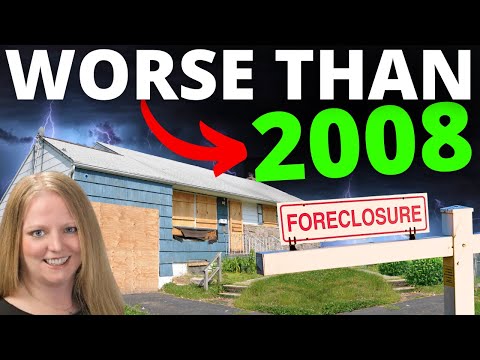Navigating the Turbulent Waters of Default on Mortgage
Whoever says navigating the world of home ownership is smooth sailing has probably never encountered the choppy waters of a mortgage default. So, what exactly does it mean when we say someone has ‘defaulted’ on their mortgage? As the nuts and bolts of mortgage agreements go, a default is when a homeowner has broken the contract they signed when they took out their loan—most frequently by falling behind on monthly payments.
Understanding the nuances of defaulting on a mortgage isn’t just a matter of legal curiosity—it’s fundamental to keeping your ship afloat in the ocean of financial responsibility. So, let’s buckle up and prepare to dive deep into the consequences that can ripple through The life of a borrower when the waves of default come crashing in.

The Ripple Effects of Defaulting on Your Mortgage
Certainly, being late on a payment brings about a perfect storm of worries but fall into the jaws of default and brace yourself for a tsunami of emotional distress. It’s not just the guilt or the stress; it’s the psychological burden that can cast a long, dark shadow over the safe haven of your digs.
But the ripples don’t stop at your doorstep. Your credit score takes a nosedive, tarnishing your future borrowing reputation. Imagine, if you will, trying to set sail on new financial ventures only to find the waters muddied by past missteps. It’s like being adrift without a paddle.
Moreover, let’s not ignore the potential squalls within the family dynamic. Financial strain is no stranger to stirring up domestic tempests, causing strain and tension where there needs to be support and solidarity.

| Aspect of Default | Description | Consequences | Relevant Dates or Timeframes | Impact on Credit and Future Applications | Options/Prevention |
|---|---|---|---|---|---|
| Definition | Occurs when the borrower fails to meet the loan terms, often by missing mortgage payments. | Can lead to foreclosure and loss of home. | N/A | Substantial negative impact on credit score; defaults are viewed more favorably than bankruptcy or IVAs but worse than late payments on unsecured debt. | Maintaining a budget, timely payments, contacting lender for hardship programs. |
| Missed Payments | Missing scheduled mortgage repayments according to the promissory note. | Late fees may apply, increased risk of default. | 1 missed payment usually has a 15-day grace period; 4 consecutive missed payments (120 days) can trigger foreclosure. | Late payments are noted on credit report; the more payments missed, the more severe the impact. | Setting up automatic payments, refinancing, loan modification. |
| Mortgage Arrears | Falling behind on mortgage payments without rectifying the balance. | Accrual of late fees, default, and potential foreclosure. | Varies; typically 120 days after the first missed payment. | Negative impact, though not as severe as default or bankruptcy. Mortgage arrears noted on credit report. | Repayment plan with lender, temporary forbearance. |
| Credit Report | A record that shows your repayment history and any defaults or CCJs. | Affects eligibility for future loans or credit. | Defaults typically remain on the credit report for up to 7 years from the date of the first missed payment. | Defaults impact ability to obtain new mortgages; a history of defaults can lead to declined applications. | Improving credit with timely payments, reducing debt, and checking for inaccuracies. |
| Foreclosure Process | Legal process where lender takes possession of the property due to borrower’s failure to pay the mortgage. | Loss of home, legal fees, and potential deficiency judgment for the remaining loan balance. | Usually begins after about 120 days of consecutive missed payments. | Foreclosure remains on the credit report for 7 years, severely damaging creditworthiness. | Loan forbearance, short sale, deed in lieu of foreclosure. |
| Secured Loans | Loans backed by collateral, such as a house for a mortgage. | Seizure of collateral by the lender. | N/A | Default on secured loans can significantly lower credit scores and make it challenging to obtain new credit. | Keeping the loan current, selling the asset before default, negotiating with the lender. |
| Unsecured Loans | Loans without collateral, often including personal loans or credit cards. | Wage garnishment and legal action to recoup the loan balance. | N/A | Default on unsecured loans also damages credit score but typically has less immediate collateral impact than secured loans. | Debt consolidation, settling debt, debt counseling services. |
| Prevention | Various measures to avoid falling into default. | Lower risk of financial instability and losing assets. | Ongoing financial management. | Maintaining a good credit history by avoiding defaults helps secure future credit applications. | Early communication with lender, financial planning, emergency savings fund. |
Notice of Default: The First Wave of Trouble
A notice of default is the flare shot into the sky, signaling that trouble’s afoot. This ominous letter is the first formal step your lender will take after you’ve missed a beat—or several—with your payments. It’s a bit like watching a storm cloud form on the horizon; you know something’s coming, but you’re not quite sure how bad it’s going to be.
Generally, after about 120 days of missed payments, this notice lands in your mailbox. Go figure, it’s not just a storm warning—it’s the storm itself. For many, it marks the point of no return, set against a timeline that ticks down toward losing a home if action isn’t taken.
Take Ben, for example—no, not Ben Falcone, the charming director (though I’m sure he’s navigated some choppy waters himself)—a homeowner who missed three payments and received a notice. The cloud hanging over Ben’s house suddenly had a silver lining as he scrambled to get back on track, serving as a real-life example that the notice doesn’t have to be the end of the road.

What Does It Mean to Default on a Loan: Unveiling the Myths
Let’s set the record straight like a sailor would his compass. Defaulting on a loan doesn’t necessarily mean you’re a financial shipwreck. It’s an indication that you’re facing choppy financial seas, sure, but it’s not synonymous with delinquency, bankruptcy, or other sea monsters of fiscal strain.
Delving into this murky nautical anomaly, we find that default is a stage, much like when a storm becomes a hurricane. It has its standards and thresholds before it’s officially declared, differing somewhat from simply missing a due date or falling into arrears.
Financial analysts frequently remind us that understanding these technicalities is akin to having a reliable lighthouse to guide us through dark, monetary waters. Knowing where you stand is the first step in charting a course back to solid ground.

Navigating the Legal Labyrinth After Mortgage Default
Should the squall of default escalate, you’ll find yourself at the helm of a ship threading through the straits of legal procedures. Foreclosure—like an island notorious for shipwrecks—looms as a real possibility.
But hold fast, homeowner, because all is not lost. There are rights designed to keep you afloat. From loan modification options to possibilities for reinstatement, homeowners have several routes to negotiate these turbulent legal seas.
Seeking counsel from a seasoned legal navigator can be invaluable at this juncture. They’ll provide a map and compass to negotiate the byzantine passages of property law and foreclosure proceedings, ensuring you don’t run aground unprepared.

Salvaging Your Credit: Strategies Post-Mortgage Default
Should the worst happen and you find your credit all but capsized post-default, don’t abandon ship just yet. There are raftloads of strategies to rescue your credit score from the briny deep.
In the vein of inspirational success stories, like the Phoenix rising from the ashes, there are tales aplenty of borrowers who’ve rebuilt from the ruins of default, their sails swelled once more by favorable financial winds.
Take heed of the wisdom shared by credit counselors, who advise:
Riding out the storm is daunting, but by following expert advice, you can eventually see daylight.
The Long Road Back: Rebuilding Trust with Lenders
If rebuilding trust with lenders were a journey, it’d be a trek not for the faint of heart—a true test of financial fortitude. Discovering how to steer the ship back into friendly waters involves:
Industry data whisper rumors of changing tides, with mortgage default trends ebbing and flowing over time. Loan officers reveal, off the record, that they keep a weather-eye on your ability to navigate rough financial waters post-default. A reformed borrower is a promising bet for cautious lenders.
Innovations in Mortgage Assistance and Default Prevention
Now more than ever, mortgage assistance programs are stepping in like Coast Guards to distressed mariners. From loss mitigation initiatives to cutting-edge tech aids that help homeowners manage their mortgage life like never before; these programs can be a lifeline preventing default.
Take the whispers of recent innovations, like ‘the life’ of a mortgage encapsulated in a clever app, employing algorithms to help homeowners stay on track, reminiscent of having a financial first mate aboard your vessel.
Additionally, there are non-profit and governmental support mechanisms—they’re like a beacon to troubled ships, guiding them to the safe harbor of sustainable homeownership.
Examining the ‘What Ifs’: Alternative Outcomes to Mortgage Default
Pondering the alternatives to docking at Foreclosure Port is a bit like charting hypothetical courses on a treasure map. Some borrowers, eying the horizon, toy with the idea of strategic default—letting the lender claim their home, then walking away to start afresh. Others face unavoidable default due to storms like job loss or illness and find solace in less traditional methods of problem-solving, often navigating smoother waters eventually.
Market conditions are as changeable as the sea, and experts project that both the winds and waters of default rates will shift with them. The case studies, while wide-ranging, consistently hint at one truth: those who successfully chart a course through default do so with a blend of conventional wisdom and inventive strategies.
Navigating Beyond the Storm: A Refreshing Conclusion
Like any good sea tale, our deep dive into the consequences of default on a mortgage comes full circle. We’ve braved the tricky currents of emotional turmoil, the towering waves of credit score impact, and the prospective whirlpool of foreclosure, only to emerge with a sextant and a map for future navigators.
Staying ahead of the storm requires proactive management, an astute understanding of mortgage responsibilities, and a shipshape financial planning. Gazing towards the horizon, one can’t help but feel an upswell of hope. Innovations and aid programs are lighthouses in the fog, and borrower education is the new lifeboat on deck.
Sure, the consequences of default are formidable. But for those willing to grab the helm and lead their financial ship through the storm, the seas do calm, and the shores of stability await. Whether it’s assessing “How much Is it To break a lease” or weighing the cost of “older mobile home insurance“, MortgageRater.com remains your steadfast guide. Even if you find yourself navigating as treacherous a passage as the mortgage waters surrounding “Palawan, Philippines”, there’s a route to recovery, a course to redemption, and a tide of hope that lifts all boats.
Did You Know? Mortgage Default Nuggets
Hey there, homeowners, did you know that stumbling on your mortgage can lead to a rough ride? It’s not just about misplacing your dream home; it’s a series of dominos that could topple down, potentially leading to a real-life game of monopoly where, unfortunately, you might not pass Go.
📉 The Downward Spiral After a Missed Payment
Whoa, Nelly! Missing a single payment on your mortgage is like forgetting your anniversary—it starts a chain reaction. Initially, you might just get a slap on the wrist with a late fee, but if you let that bill collect dust, you’re in for a world tour of woes. Your lender will serve you a notice of default quicker than you can say, “Uh-oh!”
Lenders have a shorter fuse than you might expect. In general, once you’re 90 days behind, they might blow the whistle and send in the collections team. And trust me, these folks aren’t the welcoming committee you’d want knocking on your door.
💣 The Credit Score Explosion
Ever hear the phrase, “That’ll leave a mark”? Well, defaulting on a mortgage will tattoo your credit report with a smudge that’s tougher to scrub off than that mystery stain on your favorite shirt. Your credit score will tumble faster than a clumsy acrobat, making future borrowing as tricky as threading a needle while riding a rollercoaster.
🏖️ Dream Vacations vs. Default Nightmares: The Palawan Perspective
Alright, imagine you’ve been saving up for an unforgettable trip to the stunning Palawan , Philippines.( It’s all sun, sea, and sand as far as the eye can see. A default on your mortgage, though, can snatch that dream away as if it were made of sand itself. Instead of exploring the hidden lagoons, you could be diving into a sea of paperwork and legal jargon. The thought alone is enough to make you want to stay on the straight and narrow, isn’t it?
🏠 The Last Resort: Foreclosure Frenzy
Now, if you thought getting a late fee notice was like getting a rock in your shoe, foreclosure is like hiking up a mountain in flip-flops—totally not fun. When foreclosure knocks, it’s not just a question of packing your bags; it’s a potential public record that shouts, “This guy dropped the ball!” And that’s a shout-out no one wants.
🤷♀️ The Aftermath: Life After Default
After a default, you may find it tougher to get a new mortgage than to find a needle in a haystack. And let’s not ignore the elephant in the room—moving! You could end up couch surfing at your buddy’s place or moving back in with the folks, which, let’s face it, is no one’s Plan A.
In the end, defaulting on your mortgage is a can of worms you really don’t want to open. It’s like going to a potluck and accidentally tipping over the dessert table—not only will it be a mess, but your sweet dreams of homeownership can get pretty sticky, too.
So, moral of the story? Keep your mortgage current, or you might just find yourself filling out change-of-address forms instead of postcards from paradise. And if you’re ever in a pinch, talk to your lender—they’re not monsters, promise. They might be able to help you find your feet before you go sliding down that slippery slope to default-ville.




